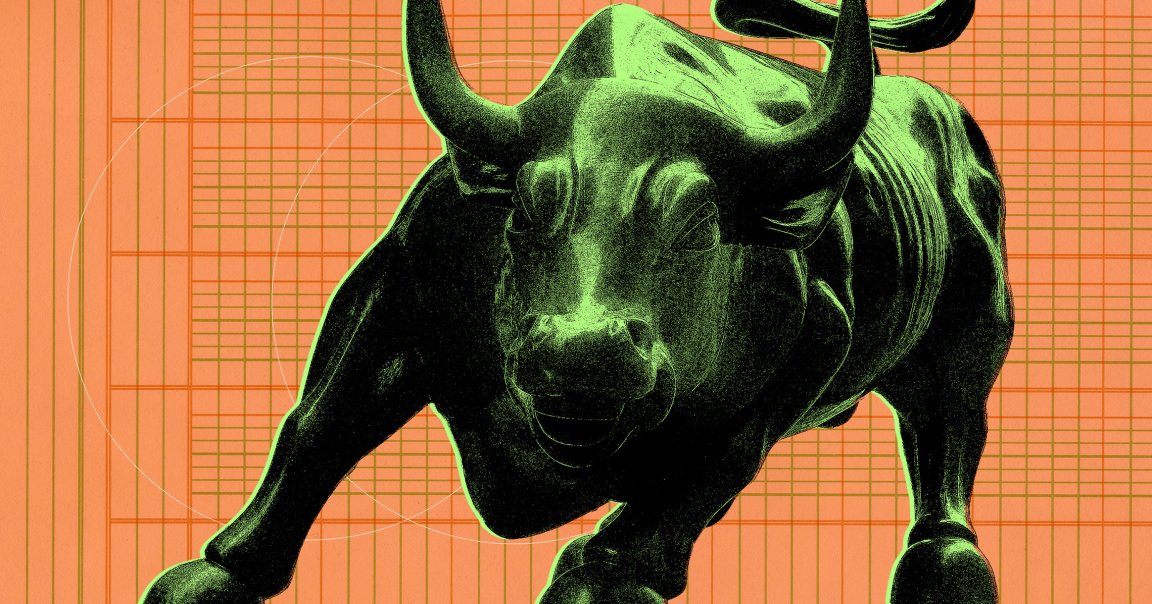
The amount of cash backing artificial intelligence right now is so high that it’s almost meaningless to the average person.
There are now almost 500 AI unicorns — companies valued at over $1 billion — worth a total of roughly $2.7 trillion, enough to do some serious damage to the economy if things don’t go well.
But for investors, that cash represents a dream: that AI will someday do more than generate video essays explaining that Nubian giants built the pyramids, and become a major financial driver.
Whether that will ultimately come to pass is anyone’s guess. But for the first time since US president Donald Trump’s bizarre tariff scramble back in April, Wall Street is clearly getting the jitters.
Over the past five days, the Nasdaq — a tech-heavy stock exchange — tumbled by nearly three percent, a trajectory that wiped out weeks of big tech gains.
Leading the charge was the chip giant Nvidia — the shovel company to the AI gold rush — from $182 per share on Tuesday to a low of $169 the following day. Microsoft, a major backer of OpenAI, likewise dove from a high of $525 per share on Friday to around $505 when the markets closed on Wednesday. Other Nasdaq world-beaters like Apple, Amazon, and Alphabet fell as well.
The S&P 500 also sank for the fourth day in a row, shedding some 1.5 percent of its composite. That was led by a hard hit to AI spying company Palantir, which has slumped some 9 percent over the past five days of trading, after hitting a record high stock valuation last week.
Altogether, the drama represents losses of over $1 trillion in the stock market — one of the first notable drops in confidence from investors who have so far backed the tech industry’s AI plans to the hilt.
The question now is whether this is a sign that the AI bubble is starting to burst, as some have been predicting for months, or if some investors are simply cashing in on tech stocks that have experienced unprecedented growth in 2025. (Investors may not be quite sure themselves; the needle on CNN‘s iconic “Fear & Greed” index is currently hovering right in the middle between the two powerful financial sentiments.)
A CNBC analysis, for example, speculates that “investors could just be taking profit and enjoying the summer.”
One narrative that may be driving some of the chill: a bombshell MIT analysis of AI pilots in corporate settings, which found that 95 percent of enterprise rollouts are currently failing.
“The story is spooking people,” as an anonymous trader working with a multibillion-dollar tech fund recently told the Financial Times.
Some commentators, like UBS head of global equities Ulrike Hoffmann-Burchardi, aren’t shy about acknowledging the shaky ground AI stocks have been treading, telling CNN that “investors rotated out of high-momentum tech stocks, reflecting renewed jitters over the sustainability of the AI trade.”
OpenAI CEO Sam Altman, usually an unflagging automation hype man, seems to concur. Last week, the AI tycoon told reporters that tech stocks were way overhyped on the buzzy new software.
“Are we in a phase where investors as a whole are overexcited about AI? My opinion is yes,” Altman said.
There are also some other issues giving floor brokers heartburn these days, not least of which is the ongoing tug-of-war between Trump and the Federal Reserve.
Time will tell whether or not this rout is a temporary setback or the beginning of the end for one of the largest stock bubbles ever recorded. One thing’s for sure: this can’t go on forever.
More on stocks: AI Industry Trembles as Nvidia’s Stock Nosedives